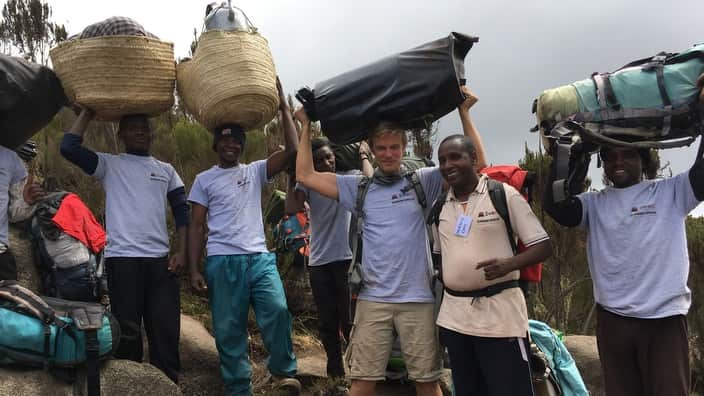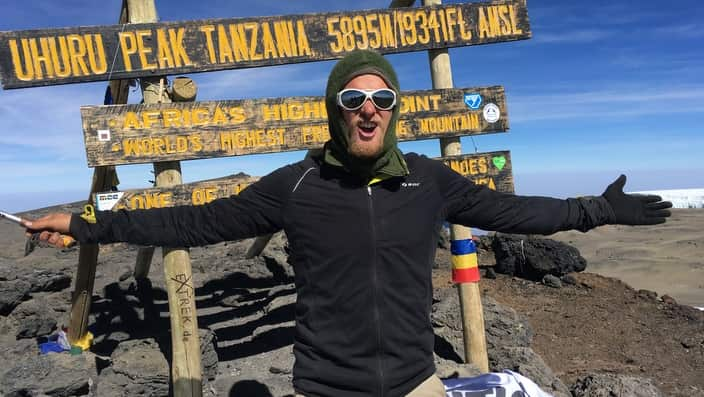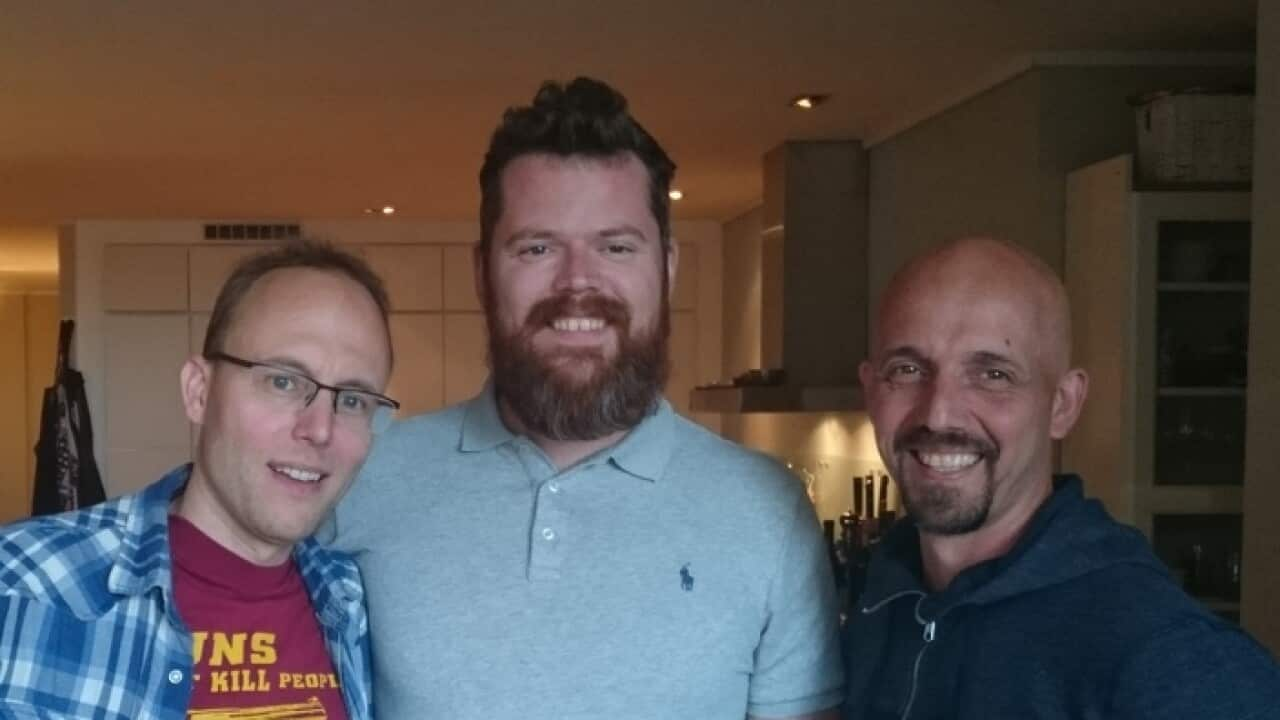"I thought someone must have done this in the past, but everyone I talked with said this was actually the first time a white guy walked as a porter," Jonathan Ljunqvist tells SBS Norwegian of his recent climb up Africa's iconic highest mountain.
"That felt pretty big for me, that I was actually maybe creating history in Tanzania! Feels good for me."
Ljunqvist had already climbed Kilimanjaro as a 19-year-old but as the adventurer that he is, he added an extra challenge when he recently ascended the mountain for the second time, choosing to forego the porter service provided to tourists, and instead climb as a porter himself.
"I climbed it the first time when I was 19-years-old," Ljunqvist says of the famous summit.
It was on a late-night visit to the lavatory during his first ascent that he saw the porters sleeping outside on thin mats and felt for them.
Ljunqvist explains, "I went up to the toilet in the middle of the night and I saw that the porters lying there, really freezing on their small blankets."
"And these porters had been carrying such heavy [loads]. And I felt so sorry for them."
So during his last ascent of Kilimanjaro, he decided to do it as one of them.
"And I remember asking myself, maybe I can do it as a porter, to be come sort of support to them, and also lift up them to society."

"Every tourist gives away 20kg to one porter."
Mt Kilimanjaro is Africa's highest mountain and one of the so-called Seven Summits - a collection of the highest mountains on each continent. Climbing it is a challenge not to be taken lightly.
It is an expedition which normally takes over a week, and the oxygen level at the top is only half of that at sea level.
Because of these challenges, travelers are use local carriers, or porters - like the sherpas who work in Nepal. It is unusual for tourists to climb Kilimanjaro without this help.
"Every tourist gives away 20kg to one porter," explains Ljunqvist.
"So I was also carrying all of my own stuff and all of my camera equipment - so it was a total 35kg."
"We were 30 people at that time and we had 60 porters and Tanzanian guides."
"So when you understand how many things they are carrying up - it's a lot of stuff."
"I just wanted to break down the barrier between black and white people."
So what made Ljunqvist want to be part of the porter team?
"I just wanted to break down the barrier between black and white people," he says. "I wanted them to see 'ok here's a white man and he's doing our job.'"
He ascended the mountain side by side with the carriers, carried luggage for tourists, put up tents, cooked food and had to walk several trips up to down to bring up all the equipment that was required.
"After a couple of days, when they saw me carrying the big backpack, one porter came to me and said 'we walk together my brother.'"
It was not easy in the beginning though.
"The thing I was having the most problem with at the beginning was keeping up at the same pace as the porters had because they walked really, really fast."
"I'm used to carrying big backpacks in the military and across India, but the altitude is the big problem."
"At 6,000m it's half the oxygen levels that it is at sea level."
Ljunqvist says it was a great experience but it took some time to gain respect from the carriers in the beginning.
"In the beginning it was hard to find respect because they thought I wouldn't make it," says Ljunqvist.
"But after a couple of days, when they saw me carrying the big backpack, one porter came to me and said 'we walk together my brother.'"

"They were not used to the white people spending that much time with them"
Ljunqvist explains that it was only natural the team should grow closer.
"I wasn't only climbing with them, I was also sleeping in their tent, I was eating food with them and tried to do all the duties they had, like assembling tents, help with the cooking and everything."
After he showed that he was serious and slept in the tent alongside them they started to take him seriously.
"And after that it felt like I was one of them. "
After that, they became closer than ever.
"I didn't just do this as a project, the other porters really became my friend," explains Ljunqvist.
"Even after the climb, we went out, had dinner together, had a small party."
"They were not used to the white people spending that much time with them - so that's where I got the respect I think."
Ljunqvist has been travelling the world as an adventurer for the last three and a half years. He has spent five months biking from Sweden to Tanzania, he's kayaked across Europe from Sweden to the Black Sea, hiked across India and gone roller-skiing across Australia.
Below, a video by Jonathan, shared on his YouTube channel, with one of the porters he walked with on Kilimanjaro:
More from SBS Norwegian

Norway leads rest of the world in teaching Sex Ed: the honest way




